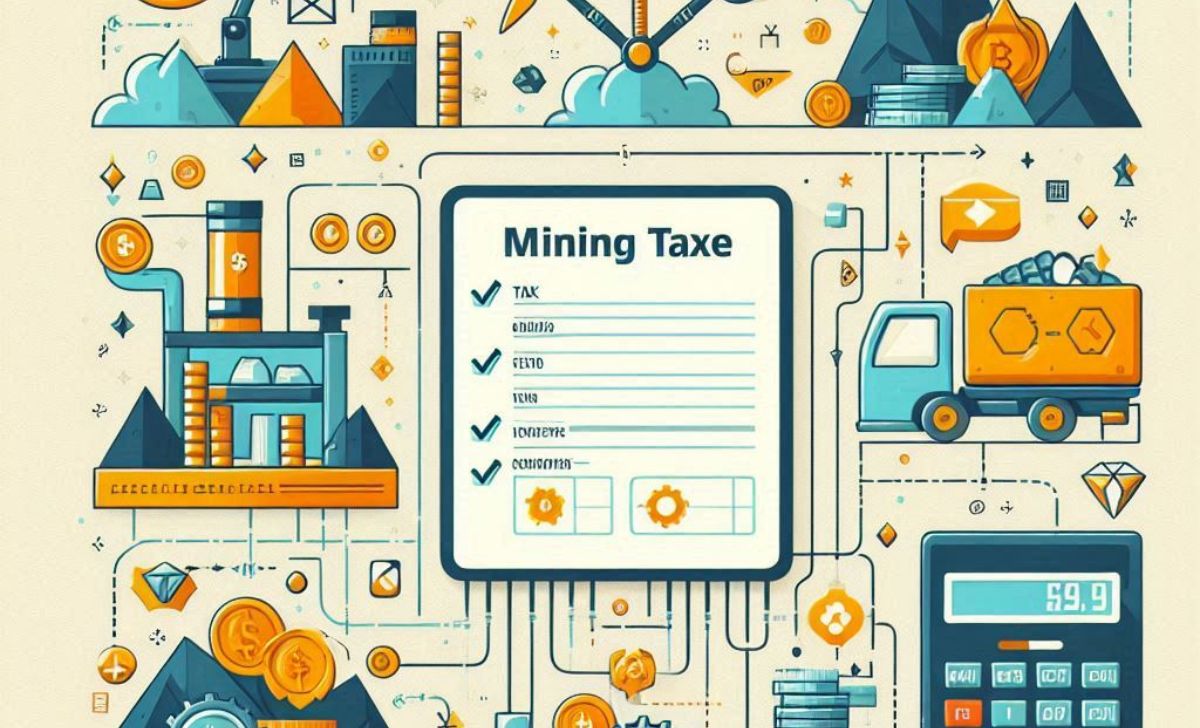Crypto mining taxes, with their complex regulations and significant impact on profits, are becoming an increasing concern for cryptocurrency enthusiasts. You may be wondering how to report mining income and looking for tips on managing crypto mining taxes.
The following article from TopCoin9 will help you gain a clear understanding of everything you need to know about handling taxes in the world of crypto mining.
Understanding Crypto Mining Taxes

Before diving into calculations and reporting, let’s start by understanding what crypto mining taxes actually are and how they work.
In most countries, the crypto you mine is considered income at the time it’s received. The value of the coin when you receive it determines how much tax you’ll owe. Depending on your country and whether you’re a hobbyist or professional miner, this income may be treated as self-employment or personal earnings.
Governments have been strengthening tax regulations for miners, and it’s now crucial to distinguish between mined crypto used for investment and crypto held for immediate sale. Some jurisdictions also require quarterly tax estimates.
Now that you know how mined crypto is classified, let’s explore how exactly it’s taxed and when the tax events occur.
How Is Crypto Mining Taxed?
Once you receive mined cryptocurrency, the tax implications begin immediately. Let’s walk through the two primary taxable events you need to be aware of.
- Receipt of Mined Coins: When you successfully mine a coin, its market value at that moment counts as income. You’re taxed on that value, even if you don’t sell the coin immediately.
- Selling or Trading the Coins: Later, when you sell or exchange the coin, any profit made from the original value becomes a capital gain and is also taxed.
In some countries, self-employed miners may also owe additional taxes like Social Security or Medicare. Understanding these layers of tax regulations for miners helps prevent surprise bills down the line.
As mining expands beyond traditional setups—especially with innovations like mobile crypto mining the tax treatment may become even more nuanced depending on your jurisdiction.
With a clear understanding of when taxes apply, it’s time to explore how to accurately report your crypto mining income.
Reporting Your Crypto Mining Income

It’s not enough to know your income is taxable—you also need to report it correctly to the authorities. Here’s how.
For U.S. taxpayers, self-employed miners typically use Schedule C to report income and expenses. Hobbyists, on the other hand, might use Schedule 1. You must include the coin’s fair market value on the day it was mined, regardless of whether you’ve sold it or not.
For example, if you mined 1 ETH when it was worth $2,000, you need to report that $2,000 as income. Later, if you sell it for $2,800, the $800 difference becomes a taxable capital gain.
To report accurately, good records are essential. Let’s take a look at the best practices for record-keeping.
Best Practices for Crypto Mining Record-Keeping
To stay on the right side of tax laws, keeping meticulous records is non-negotiable. Here’s how you can do it effectively.
You should log the following details:
- Time and date of mining
- The exact cryptocurrency mined
- Market price at time of receipt
- Amount mined
- Related expenses such as electricity and hardware costs
Using a crypto mining tax calculator such as Koinly, CoinLedger, or TokenTax can automate this process. These tools connect directly to wallets and exchanges to track value and transactions in real-time, saving you hours during tax season.
As you consider tools and best practices, don’t forget that tax strategies may also vary based on whether you’re engaged in Bitcoin or altcoin mining. Be sure to explore specific altcoin mining tips that apply to your setup.
With your records properly organized, the next step is discovering how deductions can help lower your tax liability.
Deductions and Expenses for Crypto Miners

Mining can be expensive, but luckily, many of those costs can be deducted—if you qualify. Here’s what to know.
If you’re classified as a business or self-employed miner, you can often deduct:
- Equipment purchases (like GPUs, ASICs)
- Electricity used for mining
- Internet bills and mining software
- Home office or hosting facility costs
These deductions must be directly related to your mining activity and documented clearly. Following tax regulations for miners, it’s important to keep receipts and logs for each claim.
Reducing your tax bill is important, but steering clear of costly errors is equally crucial. Let’s review the most common pitfalls to avoid.
Common Tax Mistakes in Crypto Mining
Even experienced miners sometimes misreport their earnings or miss key details. Here’s what to watch out for.
Some of the most common errors include:
- Not reporting mined coins at all
- Using incorrect market prices
- Overlooking taxable events like converting crypto to stablecoins
- Not separating business and personal expenses
- Ignoring crypto income from staking or airdrops (also taxable!)
These mistakes can result in penalties or audits. Staying aware of crypto mining taxes and evolving regulations will help you stay ahead of problems.
Additionally, as the future of mining profitability becomes increasingly uncertain due to network difficulty and halving events, it’s vital to project returns carefully and plan for potential tax burdens well in advance.
Want to take charge of your crypto mining finances? Here are expert strategies to help you stay compliant and worry-free.
Pro Tips for Managing Crypto Mining Taxes

Handling taxes doesn’t have to be overwhelming. Here are some expert-approved tips to make the process easier and more accurate.
- Track Everything From the Start: Don’t wait until tax season—log your mining activity daily or weekly.
- Use a crypto mining tax calculator: These tools simplify your life by calculating income, capital gains, and even suggest deductions.
- Set aside tax funds: Always save a portion of your mining profits to cover future taxes.
- Work with a tax advisor: A crypto-friendly accountant can help optimize your filing and reduce errors.
Following these altcoin mining tips will not only help you stay compliant but also keep your mining business profitable long-term.
Understanding crypto mining taxes is essential for staying compliant and maximizing your earnings. By keeping accurate records and using tools like a crypto mining tax calculator, you can simplify the tax process and avoid costly mistakes. For more helpful insights and expert guides, visit the Knowledge section of our website TopCoin9 today!

Sophia Mitchell is a passionate crypto educator with 6+ years of experience in blockchain training and community building. She has led educational initiatives for major crypto platforms and now empowers the TopCoin9 audience with valuable insights into Web3, staking, and DeFi.
Email: [email protected]












